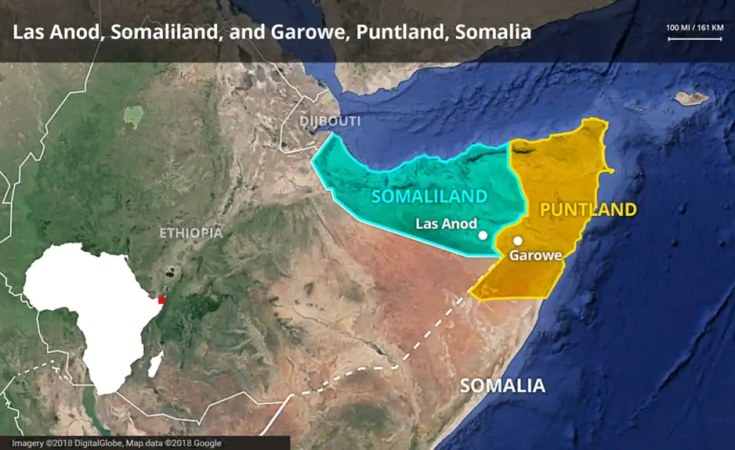Addis Ababa, Ethiopia — The United Nations Refugee Agency is calling for urgent support to help tens of thousands of Somalis who fled fighting in a disputed border town in Somalia's breakaway region of Somaliland.
The refugee agency is seeking urgent support for an estimated 100,000 Somalis who have fled to Ethiopia's Somali region.
The Somalis were displaced by fighting in the town of Las Anod, the center of a conflict between the breakaway Somaliland region and locals who want to be governed by Somalia.
The support is necessary to reduce the risk of conflict between host communities in Ethiopia's drought-affected Somali region, said Mamadou Dian Balde, the agency's representative in Ethiopia.
"If we do not support the population who are hosting and who are doing their part, you know, we can do as much as possible, but, you know, we cannot reduce that risk," Balde said.
The communities affected by drought in Ethiopia were the first responders in welcoming the refugees, says Tesfahun Gobezey, director general of Refugees and Returnees Service in Ethiopia.
He says they are getting help from the U.N. World Food Program.
"So far, we have been able to communicate with WFP, and they have generously agreed to the idea that they will consider all host communities that are affected by the drought to be included in the food distribution that would be happening to the refugees," said Gobezey.
The UNHCR is also appealing for solutions to the problem in Las Anod so that people can return home.
Somaliland Foreign Minister Essa Kayd says his government is open to dialogue -- but not on the territorial integrity of Somaliland.
"We want to give a chance to talks. We want peace and stability to take place. We want to be inclusive and have Las Anod, and Sool and Sanaag regions in Somaliland as they were before. As you know, members of the clan who live there are in the Somaliland government," said Kayd.
Garaad Mukhtar Garaad Cali, one of the traditional leaders in the Sool region, says the most important prerequisite to dialogue is a cease-fire, and that this is yet to be achieved.
"Each time the Somaliland administration mentions the word cease-fire, it might mean something to the international community, but it has a different meaning to us, which is the preparation of a new attack to the city. So long as Somaliland troops are in and out, in and around the city and can fire at us easily, it won't be possible to have a cease-fire successfully," said Cali.
The first asylum-seekers arrived in Ethiopia on February 6. And while estimates by local authorities in Ethiopia put the figure at nearly 100,000, this number has yet to be substantiated.


